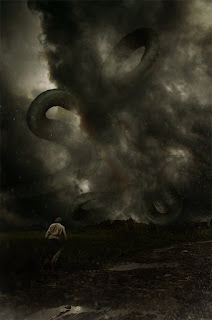The Munich effect
The intervention of all 12 members at the Security Council session, combined with Putin’s address to the nation was the stuff of gripping geopolitical drama. Putin’s body language and the look in his eyes testified to the immense gravity of the moment – and it all came to the forefront when he embarked in a concise history lesson spanning a century. Barely containing his anger at the countless ways Russia has been vilified by the West, and taking no prisoners when referring to communism, what mostly stood out was the clear-cut rendition of the insurmountable antagonism between the Anglo-American islands and the civilizational Heartland – or the clash between maritime powers and land powers. That Eurasia classic was the bulk of his exposition: the recognition of the baby twins took less than three minutes.
The Munich Security Conference, this past weekend, had made it all so explicit. Munich, as terrifying as it was in terms of a congregation of headless chickens posing as eagles, at least confirmed everything is in the open.
The enemy is Russia. NATO infinite expansion – to outer space – is against Russia. And then we had a parade of add-on threats: no disarmament in Eastern Europe, cutting off the Russian economy from the EU, end of Nord Stream 2, Ukraine in NATO, world order built on “universal liberal values”.
Munich spelled out No Compromise Whatsoever – which was exactly what Putin, Lavrov, Patrushev and co. expected, the warmongering rhetoric burying any meaningful discussion of migration, inflation, cyber wars, the European energy crisis and, of course, the only thing that matters for the MICIMATT (military-industrial-congressional-intelligence-media-academia-think tank complex, as defined by Ray McGovern): let’s milk this Eurotrash lot for untold billions in new contracts, let’s isolate Russia, let’s destroy Nord Stream 2 to sell them our ultra expensive LNG, let’s keep them on a leash – forever.
So actually it’s not even war against Russia: the $30 trillion-indebted Empire with a woke military attached simply could not afford it. Not to mention the certified freak out in case they receive a phone call from Mr. Khinzal and Mr. Zircon : cue to the spectacular Russian display of “military and technical” superiority, hypersonic and otherwise – staged, irony of ironies, in synch with the circus in Munich. What we have here is so lame: just a lowlife offer-you-can’t-refuse racket to be inflicted on the EU.
The Indivisible Security dance
The rabid Munich “No Compromise” show; the imperially-ordered Ukro crypto-blitzkrieg against Donbass; and the role of the U.S. Lack of Intelligence Community – an Andrei Martyanov-coined howler – altogether sealed the deal for the Security Council deliberations and Putin’s decision. Considering the ideological stupidity of the current Brussels gang – Stoltenberg, von der Leyen, Borrell –, incapable of understanding even basic economics, the fact remains that the EU without Russian energy is doomed. Martyanov stresses the algorithm: Russia can afford the break up with Europe. Europe cannot. The U.S. just wants to collect. And we’re not even talking about the dire, incoming ramifications of the systemic crisis across NATOstan.
Even as Moscow plays a very long, calculated game, as it stands that does not necessarily mean that Russia will be “winning” the baby twins while “losing” Europe. Russia’s strategic swing repeatedly baffles the Atlanticist combo. The U.S. lack of intelligence community was predicting a Russian “aggression” every other day – and still is. Instead they got the baby twins as the latest independent republics of the Global South.
Even before Munich, the Ukro crypto-blitzkrieg, and the recognition of the baby twins, Moscow had again warned it may respond with “military and technical measures” to ensure its own security after the U.S. and NATO blatantly ignored key points from its proposal for a long-term European security architecture, and instead “cherry-picked” issues from a package deal.
Moscow will not let the Americans run away from the by now notorious 10-page Russian response. Putin, addressing the Stavka, had already warned “we are in a situation (…) where we are forced to resolve it.” Which bring us to what John Helmer niftly qualified as Russia’s black box defense. The beauty is no one knows what’s inside the black box.
Enter, once again, the “military-technical measures” that will be “reciprocal” (Putin) to what U.S. and NATOstan are already deploying against Russia. They won’t necessarily be implemented in the Black Sea, the Sea of Azov, in the airspace above Donbass, even in cyberspace. It could be anywhere – from the Syrian theater to Latin America. Surprise! That’s what strategic ambivalence, ambiguity, or – let’s get down to the rhythm – swing is all about. You don’t believe in the principle of indivisible security? Fine. Now we dictate the security rhythm. You’re not gonna stop deploying nuclear weapons outside your territory? Fine. Here’s some reciprocity. You’re not gonna accept legally binding guarantees of our security? Fine. Meet our “military-technical” measures.Now dance, suckers.
Source: Strategic Culture Foundation.
(Banned by Twitter.)









